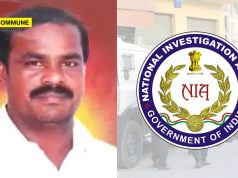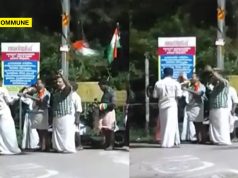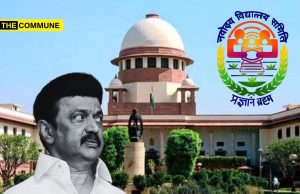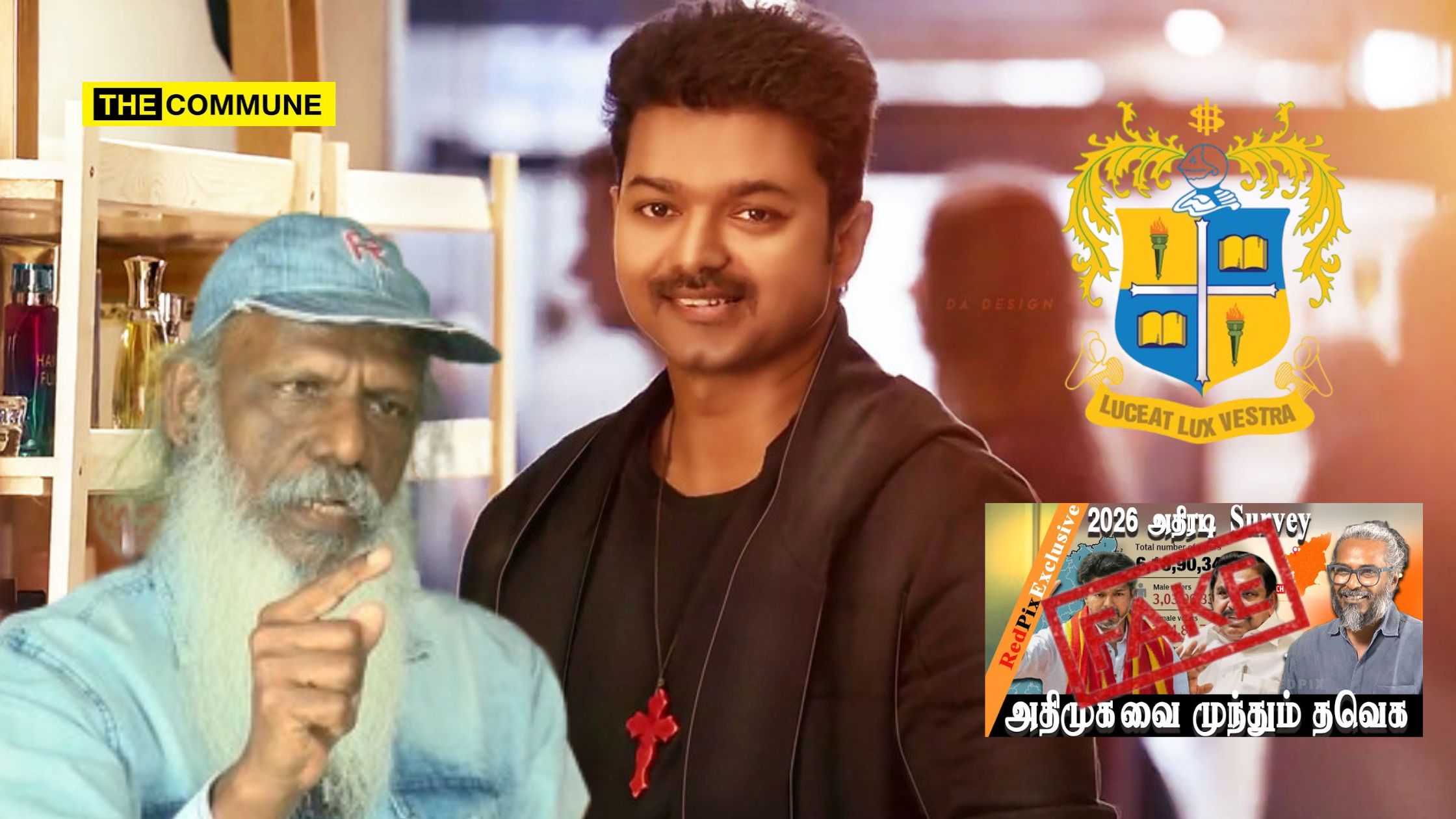
Actor and part-time politician Vijay has been actively working to position his party, Tamilaga Vettri Kazhagam (TVK), as a credible alternative to established political players like AIADMK, BJP, and NTK. As part of this strategy, he has been orchestrating a massive build-up through hyped media events such as the Vikatan function, Aadhav Arjuna’s high-profile induction into TVK, and his meeting with Prashant Kishore. Additionally, exaggerated poll surveys and artificial social media traction are being used to project TVK as a formidable force ahead of the 2026 elections. His goal appears to be creating the perception of TVK as a game-changer in Tamil Nadu politics.
Now, the latest stunt involves using misleading poll surveys, such as one conducted by Dr. Fr. S. Rajanayagam, a former Loyola College professor, during the 2025 Erode by-election to project the claim that his party has the potential to secure 18.7% of the vote share in the upcoming 2026 elections, despite his party not even contesting in the elections. Social media is now spreading the narrative that these surveys show Vijay’s party is poised to garner 18-20% of the vote share, which is a blatant falsehood in the midst of this political storm.
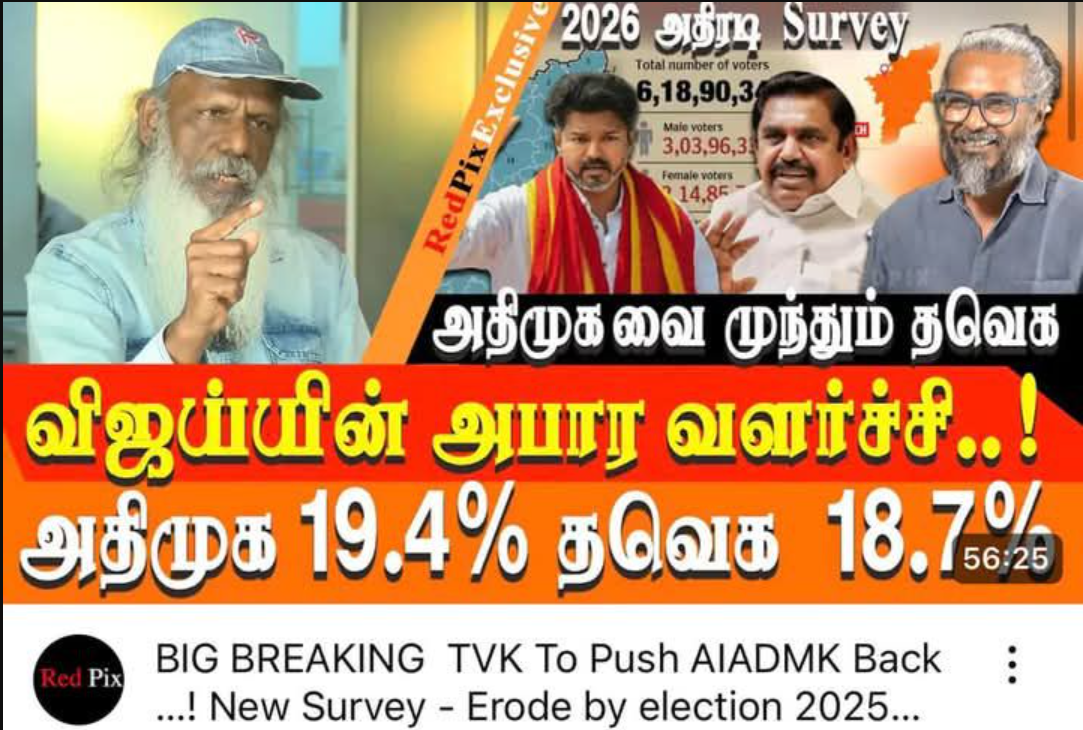
TVK SURGES! Vijay’s Party Grabs 18% in the 2026 Election Poll Survey! 🚨
A Loyola College survey in #ErodeEast projects @tvkvijayhq with a solid 18% vote share for the 2026 elections! A political storm is brewing—Is Tamil Nadu witnessing a new power shift?
Will TVK Vijay rise… pic.twitter.com/XSPot7TEW3
— The Herd (@TheHerd_z) February 5, 2025
What Is The Reality? Does Vijay Actually Have Such Widespread Support At Grassroot Level?
Contrary to claims that Vijay has a significant 18% vote share, potentially even challenging the AIADMK, Dr. Fr. S. Rajanayagam, a former Loyola College professor and the head of the survey, has stated that the rhetoric around TVK is merely wishful thinking, not reflective of actual voter turnout or percentage. The survey was conducted during the 2025 Erode by-election, which only featured the DMK and NTK as contenders, and Vijay’s party was not even participating.
Dr. Rajanayagam further explained that the 18.7% figure supporting Vijay and the TVK is uncertain. Of the participants, 7.2% were members of the TVK, but since the party was not contesting, these members were expected to vote for “none of the above.” Vijay had previously declared DMK as his primary opponent, and NTK leader Seeman had been critical of him. However, when examining how these members voted, the results were surprising. The 7.2% of TVK members were divided with 15.2% supporting the DMK, 35.8% supporting the NTK, and 49% showing no interest at all. This indicates that Vijay’s supporters lack loyalty to the party, and many are not aligned with his political agenda. It also suggests that Vijay’s lack of engagement in actual political activities and ground-level work is causing his supporters to drift toward other parties. Despite this, social media continues to push the narrative that Vijay has a 20% vote share, which is in direct contradiction to the survey’s findings.
Are Poll Surveys Manipulating Participants?
After the release of the poll survey, there have been accusations that it manipulates participants to favor actor Vijay. Political commentators suggest that a psychological technique known as “priming” could be at play in these questionable polls. Priming involves exposing participants to a particular stimulus, which then influences their response to a subsequent question, leading them toward a desired answer. For example, showing a background color or using subtle cues related to the color red could “prime” a participant to say “red” when asked. This influence can occur consciously or unconsciously, where the environment or the way a question is framed affects the answer given. In such a case, the background color may subconsciously lead the person to answer with “red,” even if that isn’t their original choice.
In the poll conducted by Dr. Fr. S. Rajanayagam, it is alleged that participants were first asked which actor they liked—Rajinikanth, Kamal Haasan, Ajith, Vijay, or Vishal—before being asked who they preferred as the CM candidate for the 2026 assembly elections. This line of questioning may have primed respondents to choose Vijay automatically. When questioned about this, Dr. Rajanayagam initially acknowledged the potential influence of the question but later denied any priming in the survey process.
Faking Social Media Popularity
It is alleged that TVK has bought profiles with large number of followers and engagement to create a facade of popularity. A Facebook page with a whopping 4 million followers and 139k likes with the page’s cover and profile photos prominently featuring Vijay alongside the TVK party flag, may give the impression that the party’s youth wing is growing rapidly and gaining immense popularity.
The page, created in 2017, was initially set up by fans of actress Megha Akash. Despite the 4 million followers accumulated across India, the page had no direct connection to TVK, which was founded in February 2024.
Subscribe to our channels on Telegram, WhatsApp, and Instagram and get the best stories of the day delivered to you personally.

